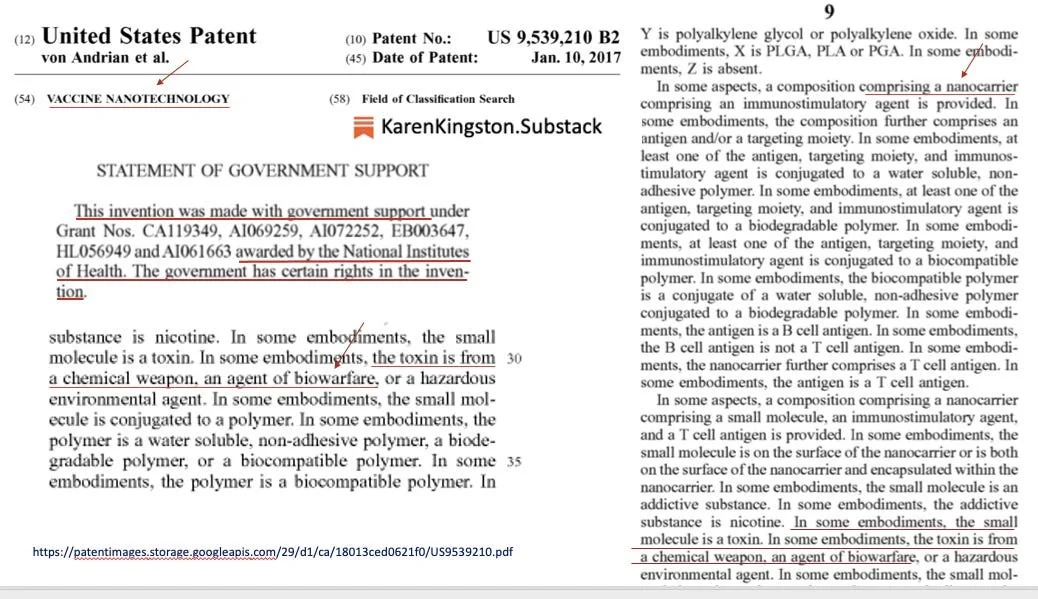The 9th Circuit Court of Appeals has ruled that the COVID mandate in LA is unlawful and violates the individual’s right to refuse medical treatment. The court held that mRNA COVID injections are not “vaccines” within the meaning of Supreme Court case precedent because they don’t prevent transmission or provide immunity from COVID. As such, COVID shots are simply medical treatments and do not the pass strict scrutiny under the Constitution because individuals have the fundamental right to refuse medical treatment.
While the decision is considered a victory to many people who take their freedom seriously, it is nevertheless cowardly because it is so late. That is, most mandates are no longer in effect and the decision comes after millions have already been forced by the government to take deadly, experimental injections - which was the point. Such is the nature of the lex-icon in the free range prison.
The ruling centers on a lawsuit brought by Health Freedom Defense Fund (HFDF) and other plaintiffs who challenged Los Angeles Unified School District’s (LAUSD) adoption of a policy that required its employees to get the Covid-19 vaccine to keep their jobs. LAUSD issued the initial vaccine policy March 4, 2021.
There was no trial. The government requested the court to make a judgement on the pleadings, which is a pre-trial motion like a motion to dismiss. To make a decision the court must accept all factual allegations in the complaint as true and construe them in the light most favorable to the non-moving party. The district court granted the government’s motion by ruling that “mandatory vaccination laws are generally constitutional” and that “Supreme Court precedent did not require that a vaccine have the specific purpose of preventing disease.’ According to the District Court, Supreme Court precedent states that rational basis review (a low standard of review) applied to these facts and under rational basis review no case can plausibly challenge a mandatory vaccination policy. The plaintiffs appealed the ruling.
The 9th Circuit Court of Appeals ruled that the district court misapplied Supreme Court precedent which states that “the principle of vaccination is to prevent the spread of disease and or provide immunity.” The court must balance the an individual’s liberty interest with the government’s societal interest in preventing disease. The government’s interest of preventing societal disease will generally supersede an individual’s liberty rights with regard to a vaccine mandate.
However, in this case the plaintiffs alleged that due to the fact that COVID shots do not prevent the spread of COVID or provide immunity, they were simply individual medical treatments - not vaccines. The complaint stated, “According to most official sources, the most the shot could arguably do was to reduce an infected person’s symptoms. Thus, it is a therapeutic, no different than taking an aspirin or other medicine to reduce the symptoms of illness.” Plaintiffs argued that “the Covid-19 shots do not prevent the spread of Covid-19 and thus must be considered as a private health matter - compulsory medication - not a public one.” Importantly, the government did not properly dispute those claims and argued that the shots are intended to reduce an individual’s symptoms of COVID and were “safe and effective” at doing so. As such, the court overruled the district court decision due to the fact that COVID shots do not meet “the principle of vaccination” or legal standard for vaccinations because they don’t prevent transmission or provide immunity. The court explained that ‘a government has power to mandate prophylactic measures aimed at preventing a person from spreading disease to others but it may not force medical treatment that is solely for the recipient’s benefit.’ The court explained that even under rational basis review (‘not crazy review’), which is a very low standard of review, the COVID mandate is unlawful because its purpose is not rationally related to preventing the spread of COVID. This is so because the injections don’t prevent transmission or provide immunity. Rather, COVID mandates have the purpose of reducing an individual’s symptoms - thus Supreme Court precedent concerning vaccines does not apply to the COVID mandate.
Furthermore, the concurrence from judge Collins explained that the district court applied the wrong standard of review and should have applied strict scrutiny review because the mandate invoked the plaintiff’s Constitutional right to refuse medical treatment. Collins said, ‘a competent person has a constitutionally protected liberty interest in refusing unwanted medical treatment.’ The Supreme Court’s case law clarifies that compulsory treatment for the health benefit of the person treated—as opposed to compulsory treatment for the health benefit of others—implicates the fundamental right to refuse medical treatment.’ Collins explained that the plaintiff’s allegations have invoked that right.’ Accordingly, the district court erroneously applied rational basis review and should used a higher standard to review the mandate because it infringed on fundamental Constitutional rights. Nevertheless, as explained, even under the lowest legal standard of review the mandate is unlawful because COVID shots are mere individual medical treatment, not a vaccine as defined by Supreme Court case law. [MORE]
The complaint stated that individuals have a Constitutional right to refuse to inject themselves with the Covid-19 shots. It stated,
The Supreme Court has recognized the right to bodily integrity as one of the most fundamental rights known to man. Indeed, it has been called “first among equals”. As the Supreme Court has said: ‘No right is held more sacred, or is more carefully guarded by the common law, than the right of every individual to the possession and control of his own person, free from all restraint or interference of others, unless by clear and unquestionable authority of law.’” Guertin v. State of Michigan, 912 F.3d 907, 918 (6th Cir. 2019) (quoting Union Pac. Ry. Co. v. Botsford, 141 U.S. 250, 251 (1891)). Indeed, the Supreme Court has “never retreated ... from [its] recognition that any compelled intrusion into the human body implicates significant, constitutionally protected privacy interests.” Missouri v. McNeely, 569 U.S. 141, 159 (2013). For more than a hundred years, the Supreme Court has applied meaningful judicial review to government actions that invaded this right to bodily integrity. It did so even before creating the modern tiers of constitutional scrutiny.
[MORE HERE] and [HERE]





















































































































































































































































































